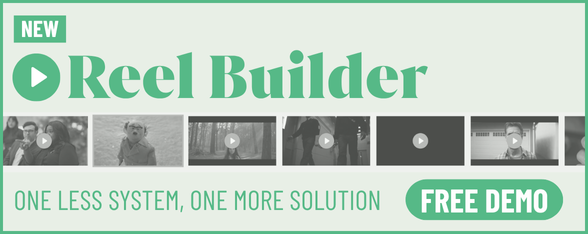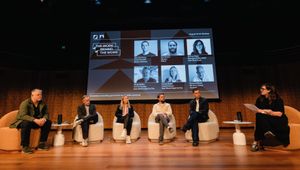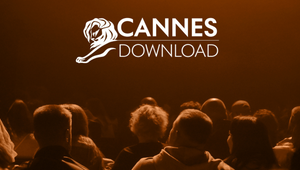
Nils Leonard: Clients Pay For “The F*cking Stuff Coming Out Of My Mouth”

The “best trick” CFOs, CEOs, and clients play on creatives is “making you feel like they don’t need you”, Nils Leonard has told a room of Australian creatives.
The founder of Uncommon Creative Studio and former chair and CCO of Grey London said he “spent years of my career renegotiating, before being like, ‘No, no, I'm not going to do that anymore.’
“I'm well aware the thing that client pays for in a pitch is the fucking stuff coming out my mouth.
“If you're the creative in the room, you're not the girl that does the coloring in, you're the fucking answer.
“I heard people say this, I used to say it. ‘I just do the colouring in.’
“Those who say they can and those who say they can't are both usually right. If you say you're the one that just does the pretty pictures, you probably just fucking are. And if you don't want to do that, then stop saying that shit. Get out there and actually view yourself as able to impact upon everything around you. Stop giving yourself a way out.”
During his keynote address at Advertising Council Australia and AWARD’s This Way Up event yesterday, he argued agencies overservicing clients leads to an impression creativity is “some sort of side product.” In fact, “that's what they bought. That's literally what their money is buying.”
“The way people talk about money and creativity in agencies, and how they talk about it in art is very different. [Artists say] ‘This is worth whatever the fuck I say it is.’ ‘How much is that?’ ‘A million quid.’ ‘Why?’ ‘Because I made it and I'm telling you, it's a million quid.’”
To underline his point, Nils referenced a quote from collaborative artist duo Gilbert & George: ‘Make the world believe in you and pay heavily for the privilege’.
“What an amazing statement. This is the relationship we should have with our clients. This is the relationship you should have with your agencies. They should understand your value, and you should make them quiver when you refer to it.”
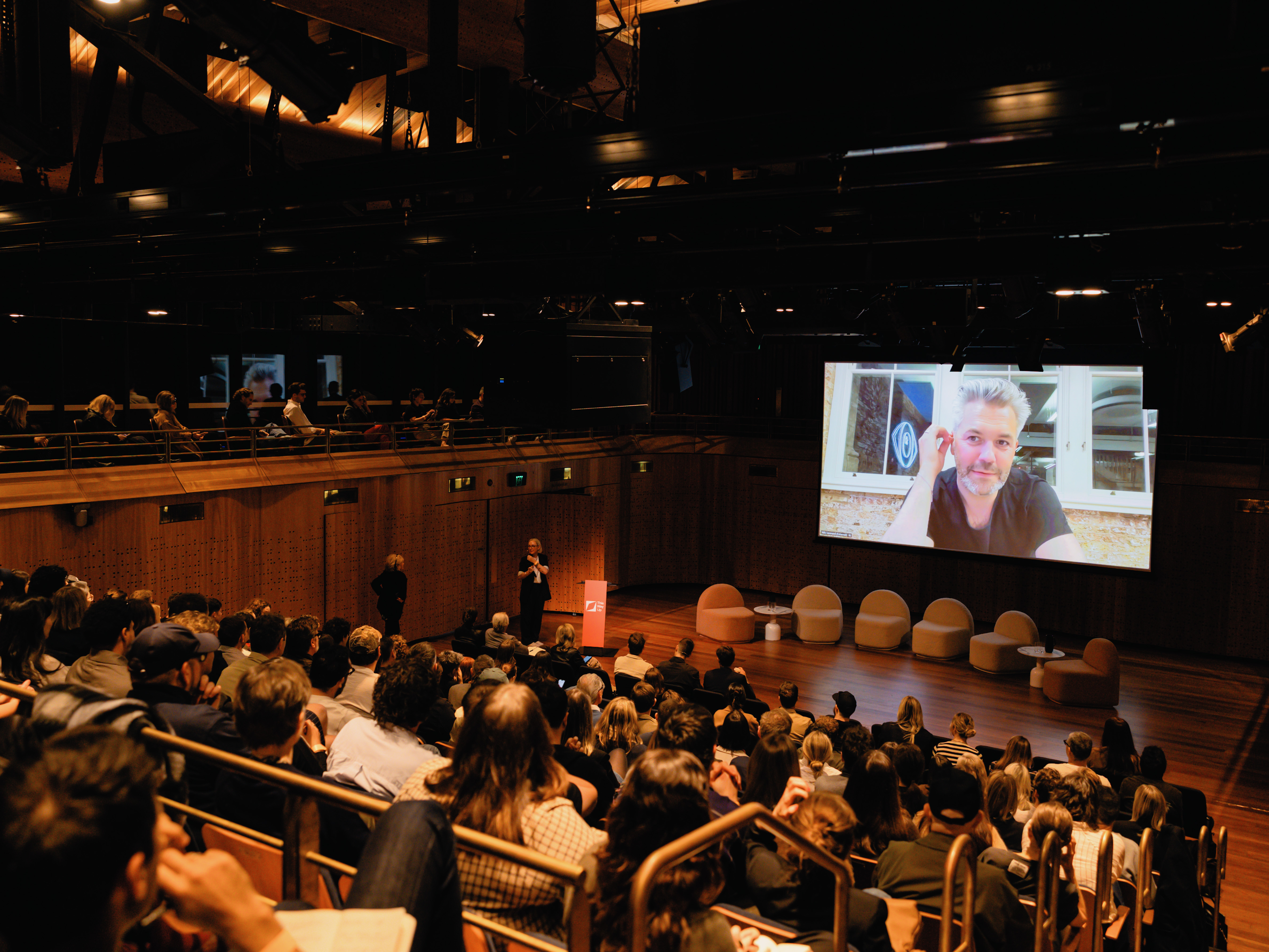
That doesn’t require completely understanding the finances, but rather understanding the value of creativity and how to make money from ideas. “People say, ‘Oh, go and be best mates with the CFO. Learn how the money works.’ I still don't really know how the fucking money works.
“I run a studio. I don't need to know how the P&L of every line item in my agency or studio. I do need to, though, understand the relationship between what we make and how we make our money.”
“Are You Dependent On People Less Ambitious?”
In 2015, Nils was involved in the creation of Volvo Life Paint, a spray that glows in the dark to make cyclists more visible to cars at night.
At Cannes the following year – where Life Paint picked up two Grands Prix – Nils recounted one creative telling another of the project, “After nine months, the client finally said yes.”
“I remember thinking, fuck, that's not good. After nine months of begging and pleading for a clearly brilliant idea, the client finally said yes. That's not actually good, that's insane.
“It really dawned on me, what if we had done that differently? What if, instead of asking permission, we made the spray, did it ourselves, and then we went to them and said ‘We're doing this, we're not asking permission, we're doing it. Would you like to be a part of it?’ I reckon it would have taken a month.”
In the years that have followed, Nils has worked to reduce the number of people he’s depending on to make something. While a normal workflow involves the likes of strategists, creatives, production and post-production experts, and PR, Uncommon has attempted to shrink it to write, then make – requiring creatives to upskill.
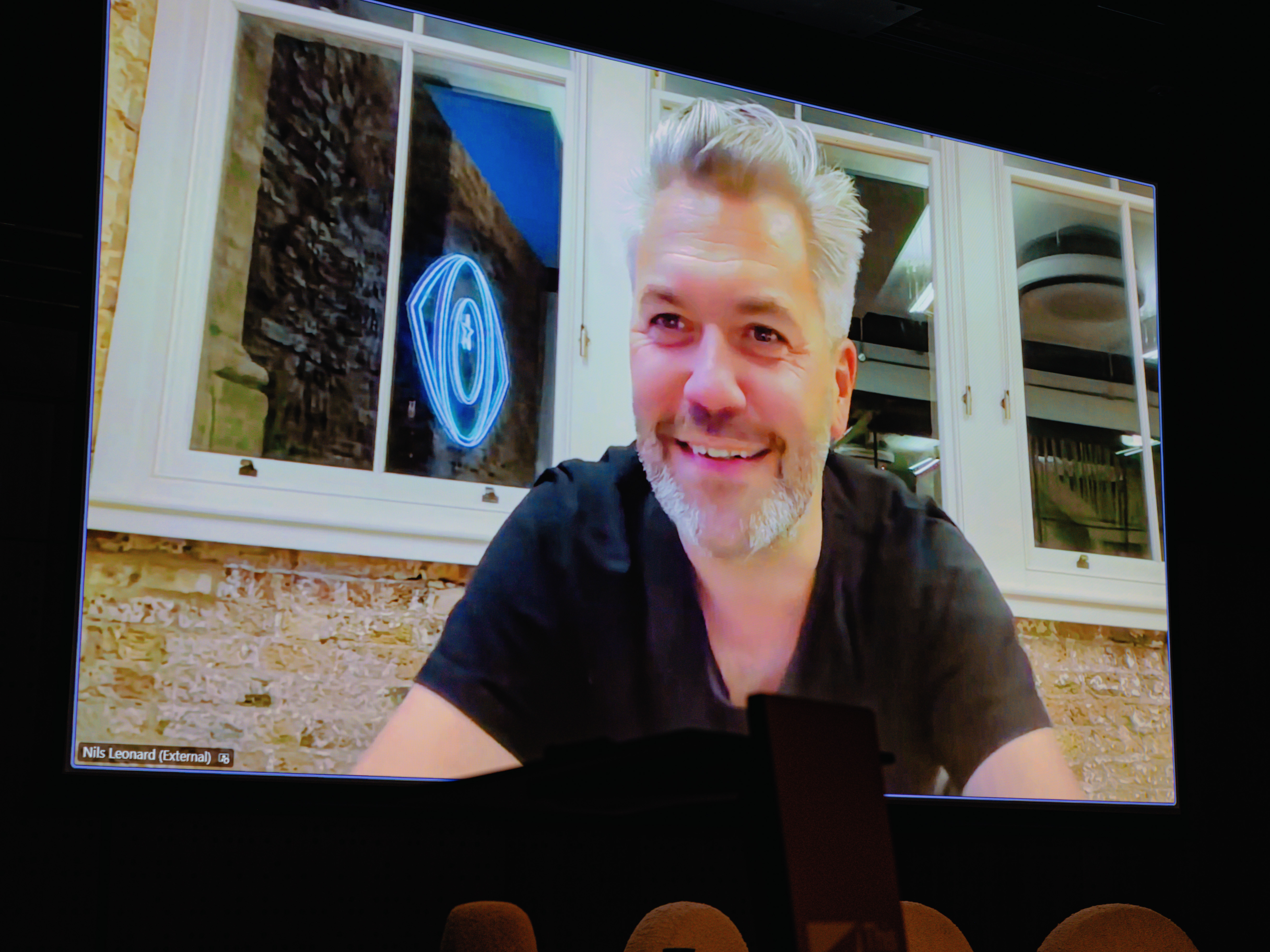
“Learn to design, learn to script, learn to draw, learn to write, edit, code, diarise, organise, prioritise, learn to meet and charm and sell and PR and smash social and shamelessly win juries over. Because, yes, that's fucking part of it. And learn to ask for money. The more you can do, the less you hide from the things you're nervous about, the more powerful you will be, the further down the road you will get.
“A massive question for me is, are you dependent on people less ambitious than you to make your dreams come true?”
Bringing great work to life requires taste, “the biggest differentiator” in an age of prompts and an overwhelming volume of content competing for attention. Honing that taste requires becoming a true collector. He urged the audience to read books, make scrapbooks, and pin work onto a wall.
“Taste cannot be taught. But what I've learned is it can be really, really helped by the excessive accumulation of high quality inputs. That's a posh way of saying, the more stuff you collect, the more stuff you bring, the more stuff you grab and swipe and take and pull from places, the richer you will be, and the more able you will be to push that taste into everything you do.”
Collecting headlines about work and wins also matters, he said, even if it initially feels arrogant.
“I call them the evidence of your success. What I've worked out is that when stuff gets hard, or even worse than half boring, this is the shit that keeps you going. I don't think there’s anything wrong with collecting that stuff as fuel.”
“Getting Fired For Your Standards” is Okay
Nils called the act of selling ‘articulation’. Expressing feelings and ideas is “basically our job” – that’s how agencies sell work and make money.
“Having the idea is half the job. Expressing it to people, not just us, but to the public, is another act entirely in its own right.”
He put it to the room: “If someone gives me a million pounds to come up with an idea for them, and I can't tell them about that idea in a way that makes them have to do it, how could that be their fault?
“How could that be their fault if they're paying you for the idea?”
Nils said it doesn’t mean being unmoving, but understanding what to stand firm on.
“We always ask, where's the win? What's the thing in this idea that it will kill it if you remove it? What's the thing that makes it amazing? That's the thing to recognise. Protect that, it makes you more pragmatic.”
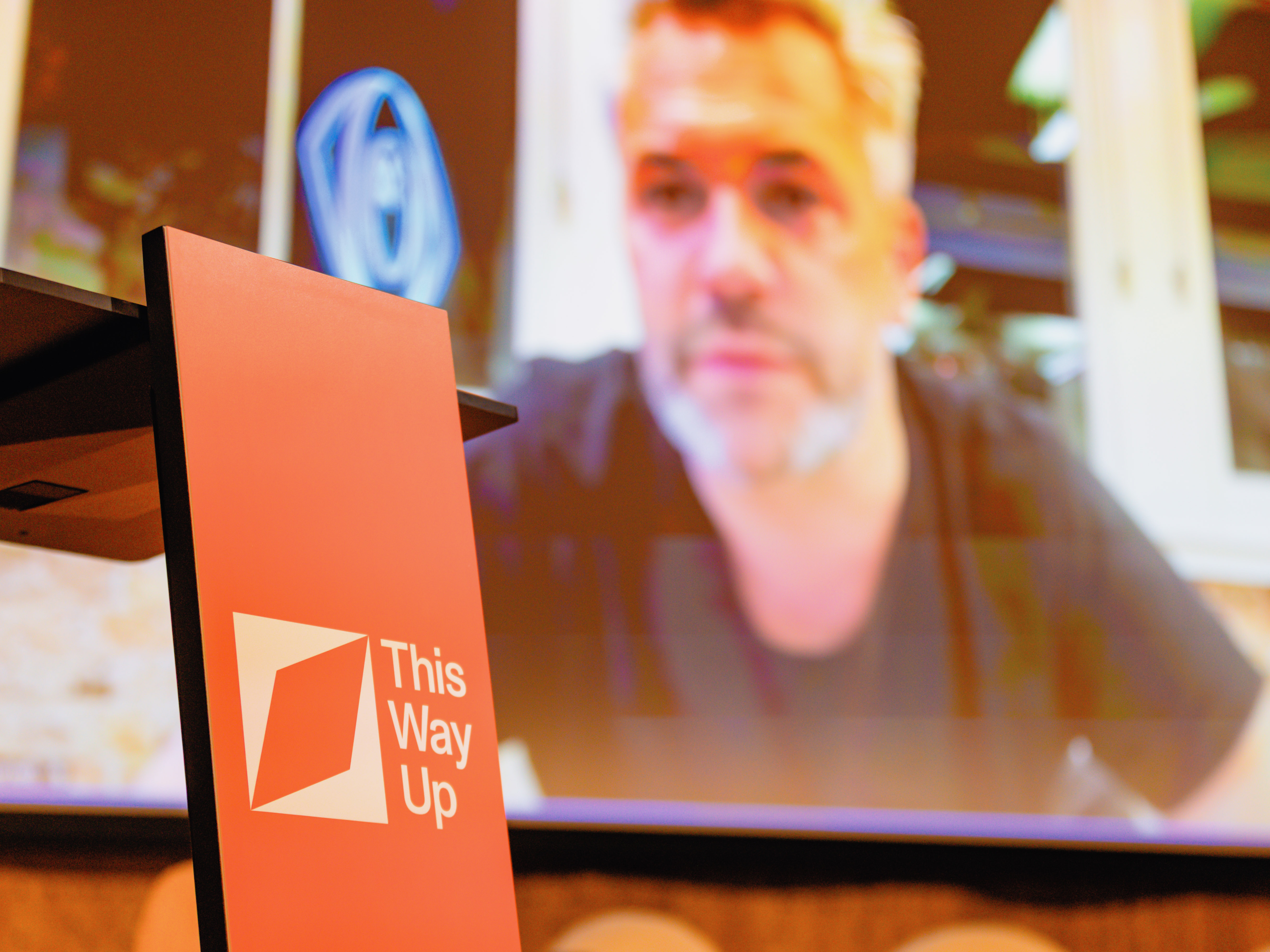
Remaining fierce about ideas will protect creatives from the biggest risk. “The biggest danger isn't AI at all. It's apathy. It's cynicism. I promise you, it’s that we all just go, ‘Ah we’ll just get it done’ – that is the biggest fucking danger, it’s nowhere near done.
“I'm trying to make a studio that people will reference in five years or 10 years or 20. It doesn't always mean you will, but the act of trying is really, really important.”
As the market shifts – especially in Australia – he praised the local independent scene, noting the UK’s is still emerging, and offered the advice, “don't worry about your career.”
“Getting fired for your performance is not the same as getting fired for your standards. One is failure, the other is reconnaissance. If you try new shit and fuck stuff up and they fire you, that's all right. Maybe you outgrew it. Maybe they just don't have a fucking place for your energy. It's fine.”






